Seats
UNLIMITEDtheater
Anastasia Lola, Greece
13′
People working backstage, during a theatre play.-Alles gut?-Alles gut? They act according to time -Alright. They wait for the right time to act. Moin!The accident happens.
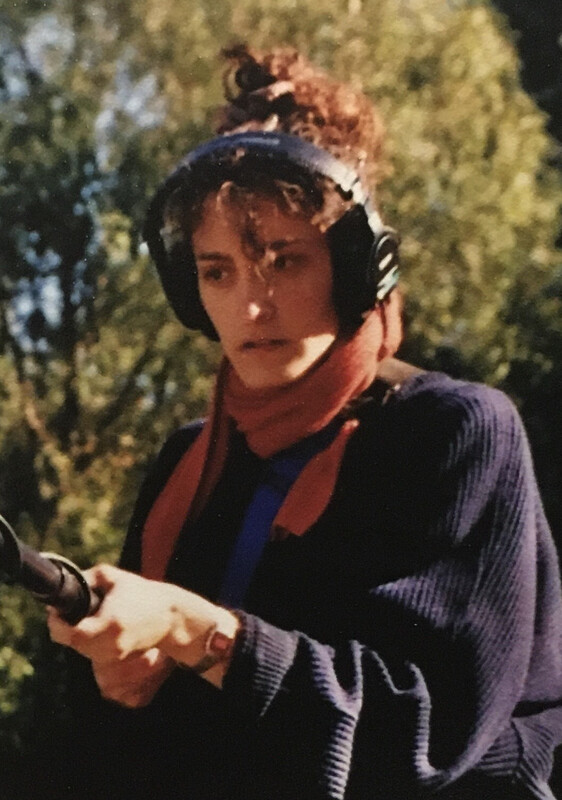
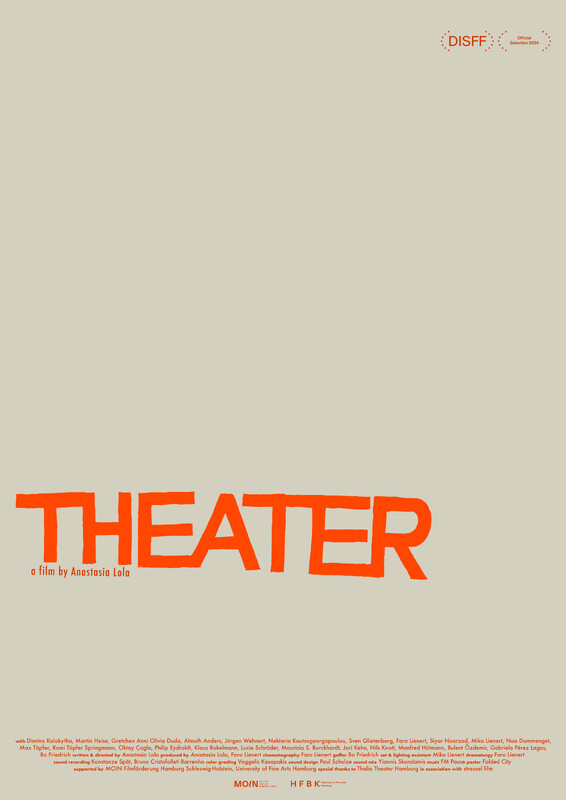
~
The Chaos She Left Behind
Nikos Kolioukos, Greece
33′ 40”
Anna feels like her life is slipping through her hands. A ticket to a music school in Paris might be the last chance to pursue her dream, but her self-destructive alcoholic father stands in her way.
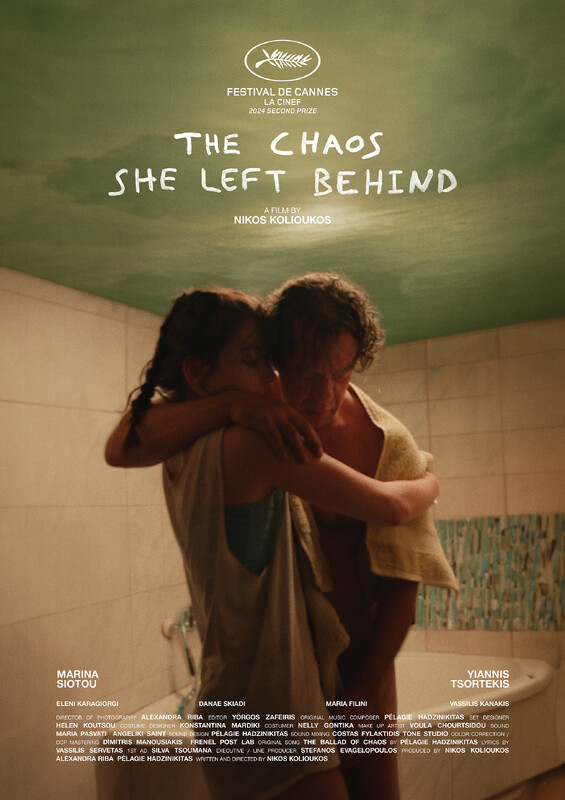
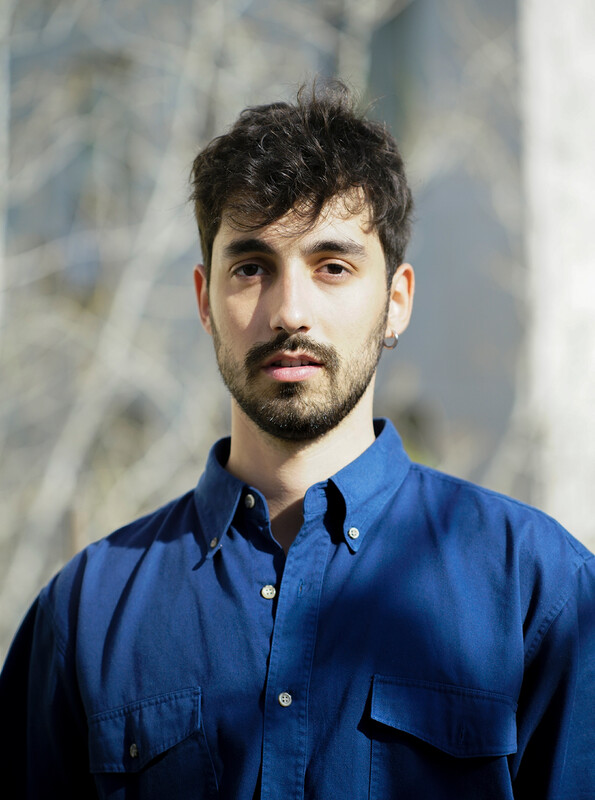
Director Biography
Nikos Kolioukos (b. 1996) is a film director based in Athens. He graduated from the Film Department of the School of Fine Arts at Aristotle University of Thessaloniki.
His debut short film, The Chaos She Left Behind, was awarded 2nd Prize in LA CINEF at the 77th CANNES FILM FESTIVAL.
This year, the film also received the Best Student Film “Iris” Award from the HELLENIC FILM ACADEMY. Ιt won the Best Director and Best Leading Actress awards at its national premiere in the national student competition at the 46th DRAMA INTERNATIONAL SHORT FILM FESTIVAL. Subsequently, the film was showcased at the 64th THESSALONIKI lFF and is now officially selected for the 30th SARAJEVO IFF.
Recently, the GREEK FILM CENTRE commissioned Nikos Kolioukos to create the official promotional campaign, using the visual identity of his award-winning film, to represent the organization at the 64th THESSALONIKI IFF.
Currently, he is preparing his next medium-length film, Amnesia (Homemade Films Productions), a queer love story set in the working-class Thessaloniki of the 1980s.
I am interested in contrasts and contradictions in life, complexity, and the unexpected power of emotions. In this film, I aimed to ensure that Anna’s relationship with her father would be sincere, realistic, and intricate. I wanted to show that light exists within the darkness and that love emerges even in the depths of selfishness.
Eutopia
Apostolos Tzikas, Tony Kris, Greece
20′
A chance meeting of two people on a bus. A paradox in an equally realistic universe like ours. Eutopia its a short film, tell us about the nostalgia of our past moments and how we should live them to the fullest before they end.
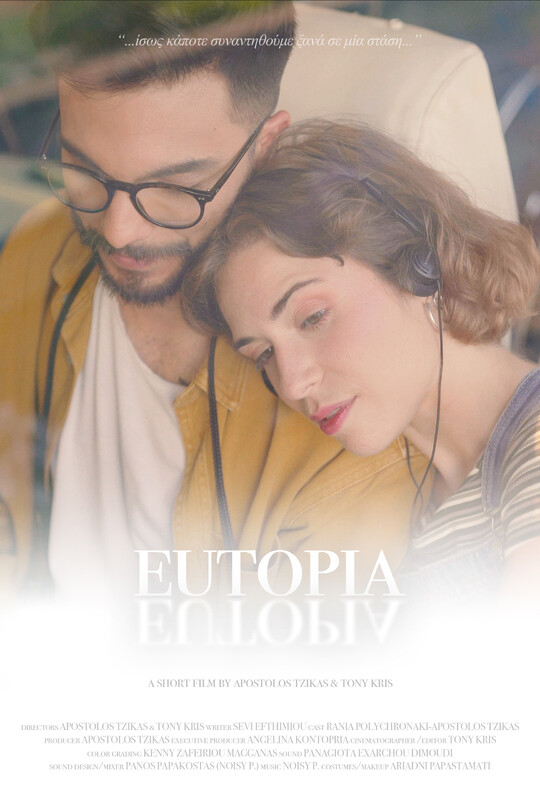
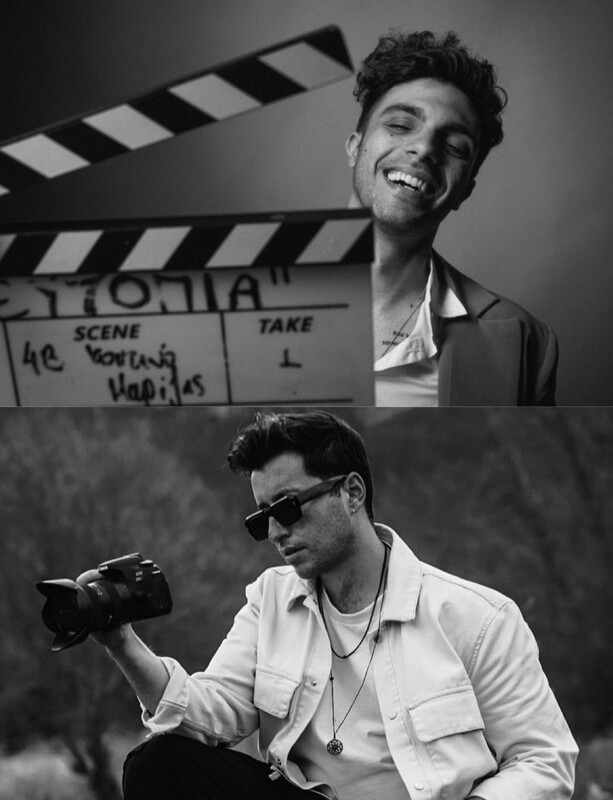
Apostolos Tzikas was born and raised in Athens. He studied at the Higher Drama School of Vassilis Diamantopoulos. He attended seminars in acting, speech education, contemporary drama, and theater modern singing and guitar. He has been working as an actor since 2015. He has worked with directors such as Kostas Gakis, Agni Chioti, Alberto Eskenazi, Androniki Avdelioti etc. in classical and contemporary repertoire in classical and alternative theatre scenes. A sample of his work are: ’’The Master Builder’’of Henrik’s Ibsen at the Alkmini Theatre, John Steinbeck’s ‘’East of Eden’’ at the Aggelon Vima Theatre, ‘’Sherlock Holmes and the Enigma of Luna Park’’ at the Glass Music Theatre etc. In the theater he has directed the play ‘’Short Murder Stories’’ by Panagiotis Bratakos at the Avaton Theatre and in cinema he has directed the short film ‘’Eutopia’’.
In his spare time he likes to be in a cinema hall and watching movies, playing guitar, reading comics and traveling.
Tony Kris (legal name Antonios Gkiaouris) was born and raised in Drepano, a small village of Argolis. He has a diploma in Art of Photography and he just finished the second year on his BA in Film Studies at University of Greenwich. He works as a professional photographer and videographer until 2018. He has worked with many Greek artists like Thanasis Tsaltampasis, Vicky Koulianou, Evridiki, Georgia Kefala, Mihalis, Hatzigiannis, Tania Tsanaklidou, Cezaris Grauzinis, Alexandra Paleologou, Idra Kayne, Katerina Stikoudi, among others. He has worked for Athinaika Theatra, Kryolan, Delta, Pantene, Theatro Athinon and more.
My intention with Eutopia is to tell a story about the nostalgia of our past moments and how we should live them to the fullest before they end.The feeling I want to evoke in this film is the feeling that you get when you look at an old photograph. Our moments are like shooting stars. Shooting stars when they are very bright seem to tear up the sky and reach the surface of the earth, they burn. In an instant. In this way they write their own history, and then they disappear. So that’s how our moments are. They appear suddenly, burn and carve their own path within us. All we can do is to remember them, capture them in a photograph and make them a memory. The good ones and the bad ones. What would happen if instead of capturing the moments, we erased them? As if they never happened? How would we feel if with one click we erased every memory of our lives that caused pain or joy?
~
The Masterpiece
Àlex Lora, Spain
20′
Leo and Diana, a rich couple, bring a broken TV to a recycle point. They meet Salif and his son, two scrap dealers. Diana asks them to come to their house to get more objects. Once there, Leo looks at them collecting objects with mistrust, until they see the scrap dealers have something they want.
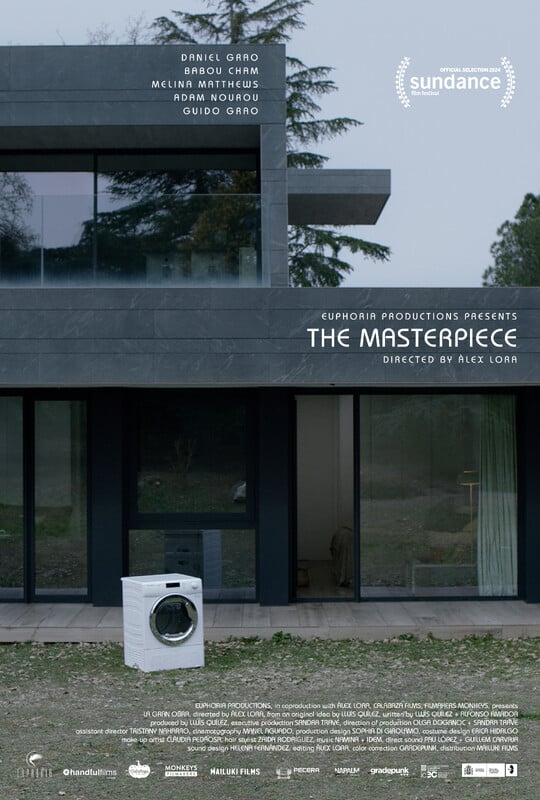
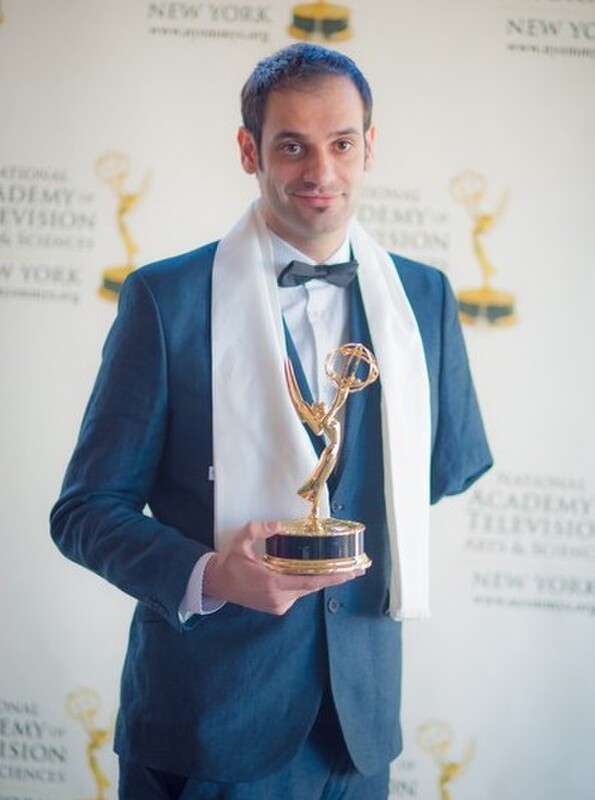
Àlex Lora is a director, screenwriter and editor, winner of 7 Emmys, 2 Gaudí Awards, Nominated for the Goya and the Oscars Student Academy Awards. He has screened his work at Sundance at official competition 3 times, and has won more than 100 awards at international festivals. His works include: Enterrados (2009); Us (2011), Odysseus’ Gambit (2012); Only Solomon Lee (2013); Godka Cirka (2014), Thy Father’s Chair (2015); Ways (2016); The Fourth Kingdom (2019), Savage Land (2020) -screenwriter and editor-; We Are Living Things (2021) -screenwriter and editor-; Unicorns (2023), and The Masterpiece (2024).
“One could think that THE MASTERPIECE is the painting, or even this great short film! but it is actually the system, the fight behind the free market, the money, the capitalism, the North vs. the South, the West vs. East, the wealthy classes against everything else, playing with lives in that white and black squared board. Maybe the only real racism is economic? the rest is history…”
~
Susurro
Gabriel Gonzalez Acosta, Mexico
13’01”
Susurro is a sonic narrative film that follows the journey of two women who climb to the top of a desolate mountain searching for the whisper of the universe. The film explores themes of spirituality, transcendence, mysticism and communion using minimalism as a narrative device to create potent ethereal worlds that summon the power of the physical realm into an aural exchange with the spiritual dimension.
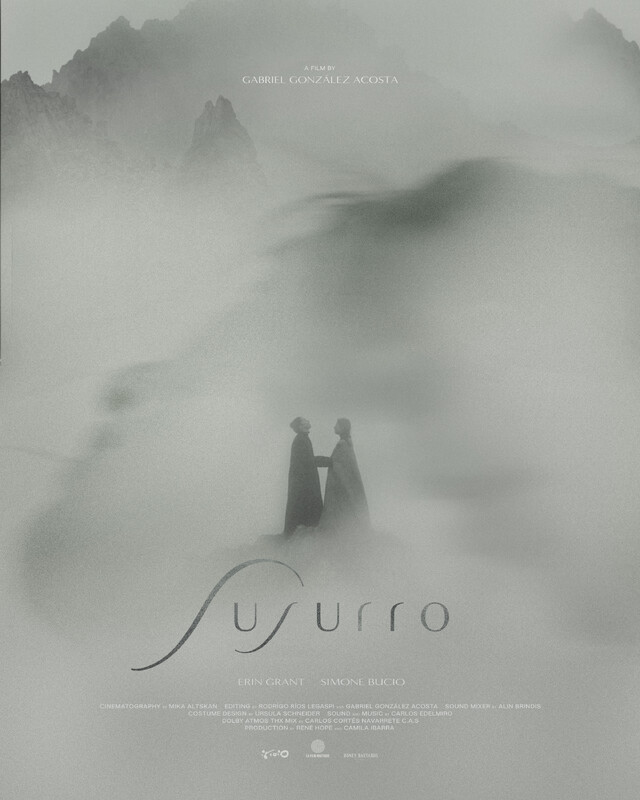
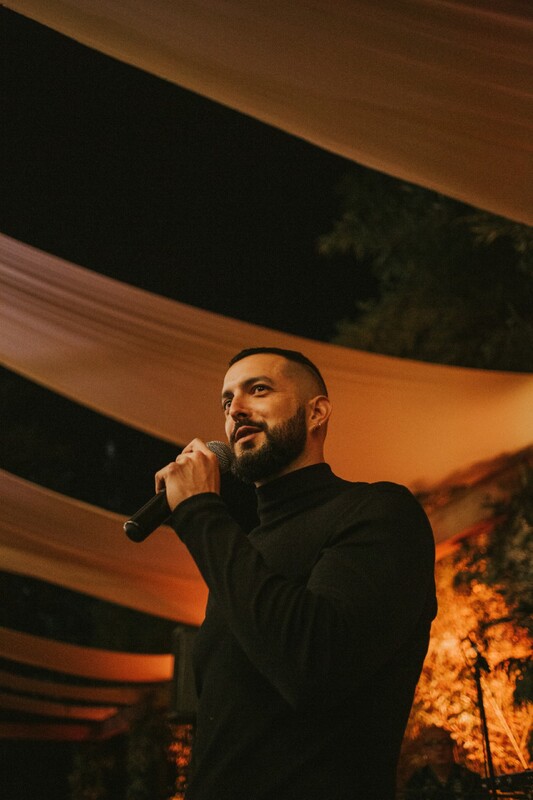
Director Biography – Gabriel Gonzalez Acosta
Gabriel González Acosta is a Mexican filmmaker and theatre director. His work explores the staging of worlds and the role of narrative, dreams, magic and place in the age of extinction. His first short, Concertina (2021) had its world premiere as part of the LAB Official Selection of the 2022 Clermont Ferrand Short Film Festival, where it was nominated for the Grand Prix. It has been selected in more than 50 international film festivals including HollyShorts, Atlanta ShortsFest (Best Director Nominee), Guanajuato International Film Festival (Best Mexican Short Nominee), The Norwegian Short Film Festival, BIAFF, amongst others. His second short Luciernaga (2022) was made under the guidance of Apichatpong Weerasethakul as part of PlayLab Film’s Filming in the Amazon residence.
He is currently in preproduction of his latest project Genesis, to be filmed later this year in Mexico. He is also in the early stages of development of his first feature film. His work has been presented in institutions and publications such as Museo Tamayo (Mexico City), HB Studio (New York), and Klima Magazine.
He received a PhD in Philosophy, Art and Critical Thought from the European Graduate School. He also holds degrees from The Royal College of Art and Queen Mary, University of London. He lives and works in Mexico City and New York City.
Director Statement
Susurro is an homage to silent cinema and the inherent magic which was palpable in early movies. As a director I am interested in the idea of a movie where narrative is built primarily through sound. There is almost no dialogue in the movie, only the absence and presence of sound as the marks of narrative time. These continue building and pulsating until the climax of the movie, the idea is to build through absence, until the arrival of sound becomes an overwhelming sensation of culmination.
The piece has always tried to operate through the sensorial qualities of cinema. I strongly believe in cinema as an art of presence, not representation. In this way, the film decides not to dwell too much on characterization and specific plot points, but rather turns its attention to the temporal-sensual moments which film is able to present. The piece was always conceived to be shown in the movie theatre. In this way it is about a communal experience of sound, light, movement and silence. I am deeply interested in what silence does to a group and to the experience of sharing silence with complete strangers.
When initially conceiving of Susurro, I was thinking about the sense of possibility and futurity that was associated with cinema in its early years, as a transformational power of technology. Susurro in this way takes inspiration from the early possibilities of the medium, with its simple yet evocative power, and explores certain tropes of the sci-fi genre, such as George Mellie’s Journey to the Moon or further on, Chris Marker’s La Jetee. The film is my love letter to early cinema as a portal for unknown magic and wonder.
Finally, Susurro is a story that deals with and in minimalism. Working with the most basic threads of cinema: faces, light, sound, costume and landscape, to evoke the alchemic possibilities which the medium carries. For me, cinema has always been a place of seances, the flicker of ghosts and spirits, touching transcendence.
~
NIGHTFACES
Martin Winter, Stefan Langthaler, Austria
23′
Mahan is a taxi driver in Vienna, but his job frustrates him. He longs for his family and a normal life. One rainy night, a homeless woman gets into his taxi. She urgently wants to see her son, whose birthday it is. Mahan tries to get rid of her and accidentally breaks her present. To make up for the damage, he takes the strange woman on one last trip through the dark city.
NIGHTFACES takes place at night, when people open the door to themselves and let us look into the depths of the soul that remain hidden during the day. A psychological drama that, in all its heaviness, is intended to give a spark of hope.
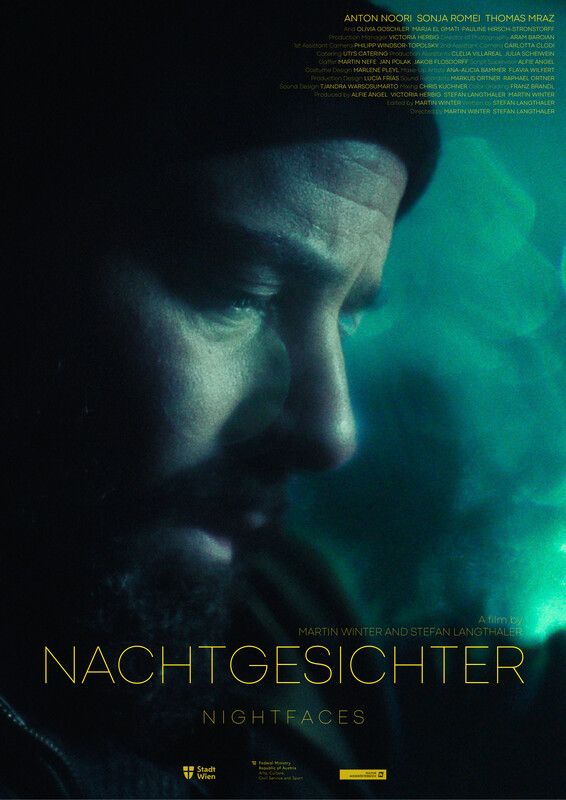
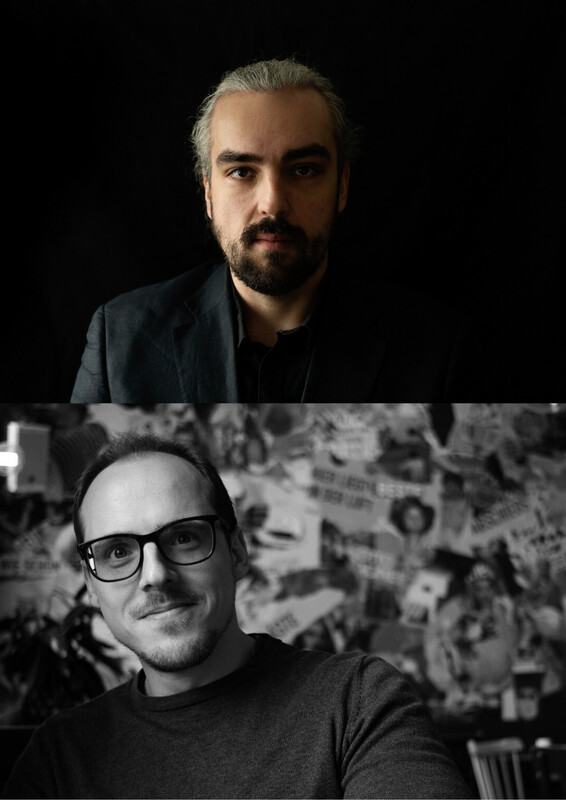
Director Biography – Martin Winter, Stefan Langthaler
Martin Winter was born 1983 in Leipzig, Germany. From 2008 he studied Directing at Filmcollege Vienna. (Directing class: Michael Kreihsl). There, he realized numerous shortfilms and documentaries together with his colleagues. The medium length film „Day Release“ is his graduation film and won the Austrian Film Award 2020.
Stefan Langthaler was born in 1987 in Vienna. From 2008 to 2013 he studied Writing and Directing at Filmcollege Vienna. For his work on FABIU he received the prestigious “Thomas Pluch Screenplay Award”. Having already been invited and awarded by several of the most prestigious film festivals in the world, the film was awarded a Special Mention by the international jury at the Festival du Court-Métrage de Clermont-Ferrand. In the meantime, FABIU has participated in over 100 festivals and received 38 awards. His latest short film BOOM AND BLOOM had it’s World Premiere at the 29th Mardi Gras Film Festival in Australia and received over 40 festival invitations.
I can’t smell the soil in my head
Alkistis Kafetzi, Germany
6′ 30”
“I can`t smell the soil in my head” is the poetic depiction of a philosophical struggle. Associative patterns and cinematic allusions create a suggestive atmosphere full of tension and release. Close-ups of the protagonist and outdoor scenery complement each other and form a synaesthetic equivalent to the inner movement of the protagonist’s struggles. The camera follows closely his trail of thoughts in a constant forward motion. It’s the bittersweet realization that a mind’s work is as fleeting as an image on a single frame.
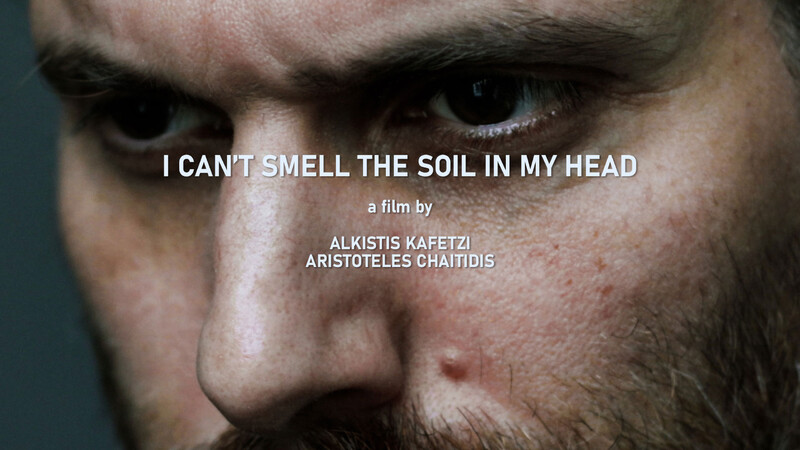

Director Biography – Alkistis Kafetzi
Alkistis Kafetzi is a Berlin based filmmaker who engages in diverse independent productions, ranging from music videos to poetry films and documentaries. She studied Theatre and Film at the National & Kapodistrian University of Athens and since 2014 she lives and works in Germany. In her recent projects, she delves into the dynamic realms of the feminist movement and self-organized communities. With her filmmaking she tries to explore evolving social landscapes, weaving together narratives that resonate with diverse voices and struggles.
~
Night Shows
Anand Sapin, France
9′ 59”
A teller of a neglected movie theater is hopeless. A man arrives and is confronted by the place and an unhealthy aura.
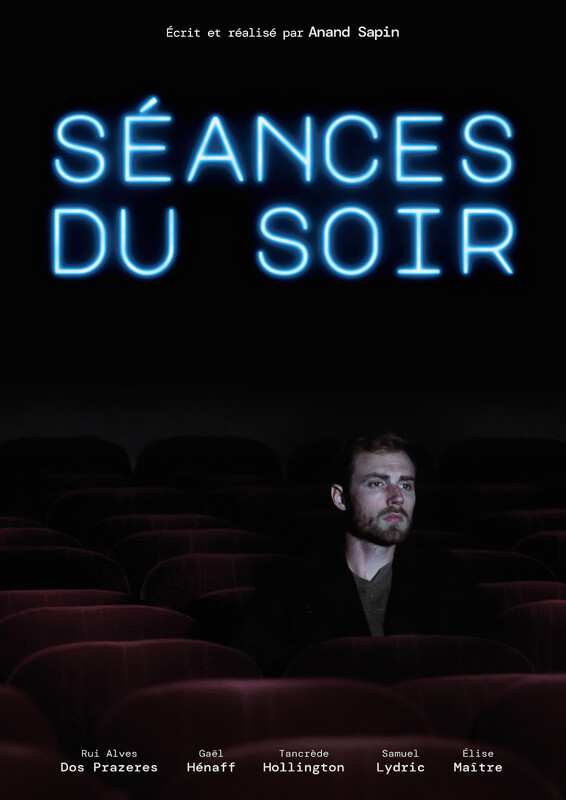
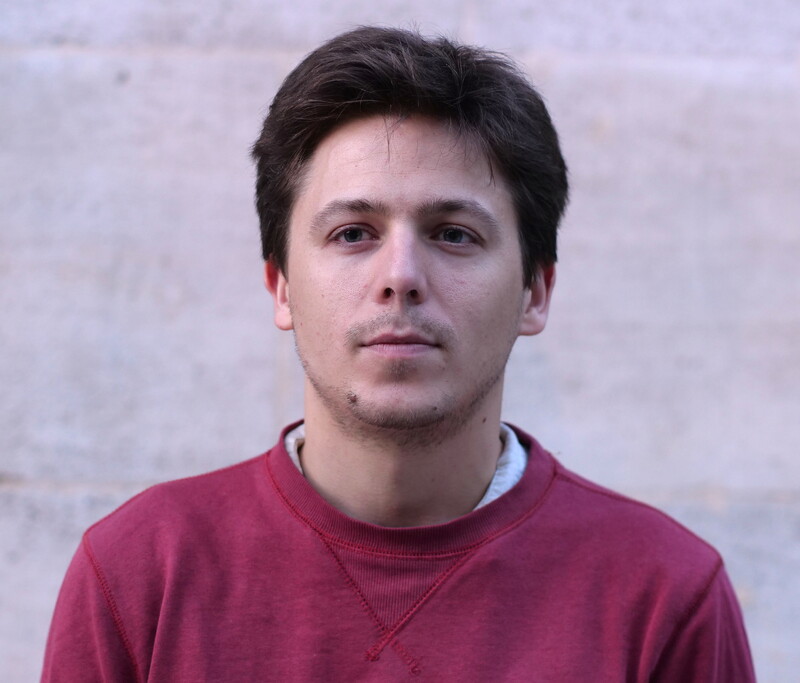
Director Biography
Passionated and curator of old movies